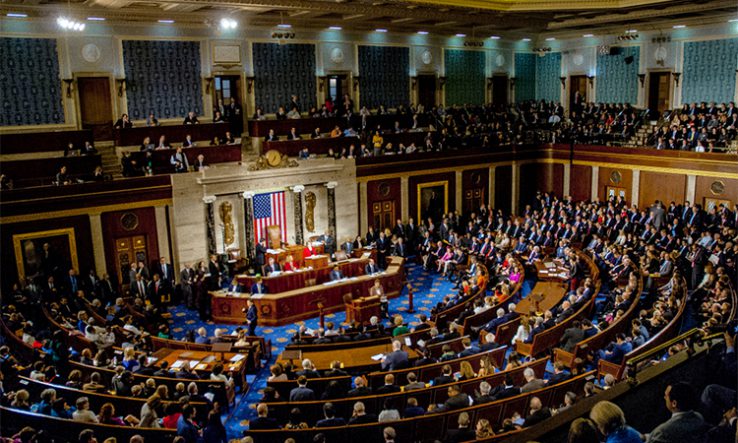
Image: mark reinstein, via Shutterstock
Federal agencies and private companies examined as confirmed US cases top 400,000
The United States Congress is stepping up its scrutiny of public and private sector action during the Covid-19 pandemic, as national efforts are refocused on tackling the country’s rapidly escalating situation.
Eddie Bernice Johnson, chair of the House science committee, has asked the Centers for Disease Control and Prevention to preserve all of its records relating to testing people for Covid-19 infections.
The US has been slower than other countries to enact measures to limit the spread of the virus, and sluggish policy responses have been partly blamed on testing being too slow. As of 8 April, the US has 400,000 confirmed cases according to data from Johns Hopkins University—more than any other country in the world, and more than many combined.
“Critical questions remain about how science informed consequential CDC decision-making in the first few weeks of 2020,” Johnson said in a letter to the agency on 2 April. She said the CDC’s decision to decline test kits provided by the World Health Organization in favour of developing its own kits, which then turned out to be flawed, meant that “public confidence in the CDC…will remain in doubt”.
Questions are also being raised about how the Environmental Protection Agency will perform its core functions during the pandemic. Tom Carper, minority leader of the Senate environment and public works committee, and 10 other senators expressed concern that the EPA had not published plans for how it will continue operations in light of Covid-19 restrictions.
“Lack of access to this information raises questions as to whether the EPA’s essential functions and response role remain intact,” the senators wrote on 1 April. They also expressed concern that the EPA was “moving forward with controversial rulemakings” without the opportunity for “meaningful public input”.
The Senate science committee is examining moves to enlist big data in the fight against Covid-19. In a hearing on 9 April, the committee is due to examine privacy concerns over the use of anonymised consumer data for identifying hotspots of disease transmission and accelerating the development of treatments.
The behaviour of private companies at the centre of the R&D response to the outbreak is also under scrutiny. The chair of the House committee on oversight and reform Carolyn Maloney urged US pharmaceutical companies to commit to fair pricing for medications against Covid-19.
In a letter on 2 April, Maloney asked companies to be transparent about the costs of developing drugs and vaccines, and to set prices “no higher than necessary to recover the costs of direct research and manufacturing”.
“We hope you agree that no drug company should be allowed to profiteer, especially during this public health emergency,” Maloney said.